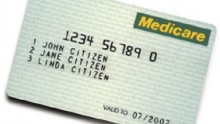 It’s clear from the reaction to the Government’s ‘Plan B’ for the GP co-payment that most health groups and experts don’t think the proposal makes any policy sense. Why, then, has the Government been so insistent on pursuing a co-payment for GP services in the face of ongoing opposition? Why focus on general practice, a speciality that has become significantly more complex since the introduction of Medicare, when a number of other medical specialties have arguably become less demanding in terms of both time and skills, due to the introduction of new technologies? In the following piece, former political adviser (and former GP) Dr Ruth Kearon answers these questions and more in her analysis of the Government’s plan. She writes:
It’s clear from the reaction to the Government’s ‘Plan B’ for the GP co-payment that most health groups and experts don’t think the proposal makes any policy sense. Why, then, has the Government been so insistent on pursuing a co-payment for GP services in the face of ongoing opposition? Why focus on general practice, a speciality that has become significantly more complex since the introduction of Medicare, when a number of other medical specialties have arguably become less demanding in terms of both time and skills, due to the introduction of new technologies? In the following piece, former political adviser (and former GP) Dr Ruth Kearon answers these questions and more in her analysis of the Government’s plan. She writes:
Simply put, the new plan is an immediate cut in the Medicare rebate and an ongoing effective cut over time as indexation is paused until July 2018.
Contrary to common perception, Medicare is a universal insurance scheme that provides a patient rebate, not a doctor payment, for medical services.
Until now, this rebate has been universal, not defined by your income, where you live or whether you see a fully trained GP or a trainee.
So, regardless of whether your doctor chooses to lower their fee for their professional service or maintain their fee and charge you an additional $5, the Government has cut the medical insurance payment for the service you receive.
Who will this affect the most?
Thankfully, the Governments new plan excludes the most vulnerable in our community; concession cardholders, children under 16, and residents of aged care facilities.
Many people who are not in these categories already pay an out of pocket expense and this will clearly get larger.
Self-funded retirees, working families who just don’t qualify for concessions and those with chronic illness whose GPs often make the decision to bulk bill for follow up appointments will all pay an additional price for visiting the doctor.
Why target general practice services?
The Government have simply picked the largest specialty area, with high overall expenditure and an easy target in terms of the political cohesiveness of the sector.
Evidence tells us that investing in a strong primary care system provides better health outcomes for less money.
What would be more difficult but fairer is to look at those areas of medical practice that are well remunerated and have changed over time to become more efficient while the Medicare rebate has remained the same. It is these anomalies that lead to the large disparity in the average income of specialist general practitioners compared to their consultant specialist counterparts.
Decreasing the rebate for cataract procedures in 2009 was the last time a targeted approach was taken in relation to making Medicare more sustainable. The then opposition health spokesperson the Hon. Peter Dutton and Senator Matthias Cormann opposed these changes, including disallowing the new Medicare rebate item on two occasions to force the Government to reintroduce it at a higher rate.
While arguably, the initial announced reduction was too great, the principle of targeting a Medicare reduction for a procedure that had clearly become more efficient over time is inherently fairer than taking a blanket approach to all general practice services.
Why target patient rebates for general practice services while maintaining private health insurance rebates at current levels?
The private health insurance (PHI) rebate is a non-universal Government contribution to individuals who choose to take out private health insurance. PHI to date has not covered general practice services, so the benefit flows to the consultant specialty workforces who provide private services in private hospitals.
If raising the price signal in primary care is considered a good idea, why not for consultant specialist services in private settings.
Is this move a Government step in the direction of extending private health coverage to general practice?
Ruth Kearon is a former advisor to Hon. Nicola Roxon during the time she was the Minister for Health and Ageing (2008-2010), a former GP and a current board member of Family Planning Tasmania.
